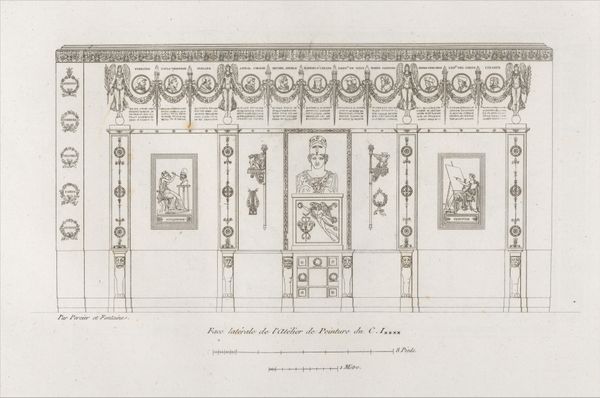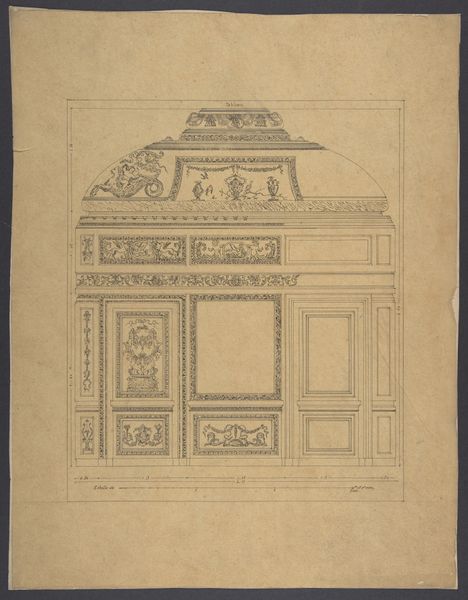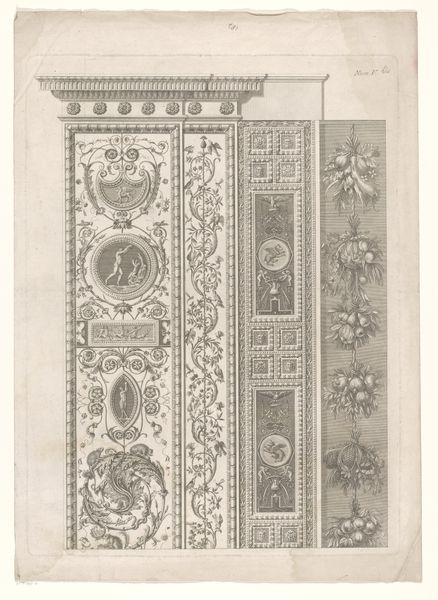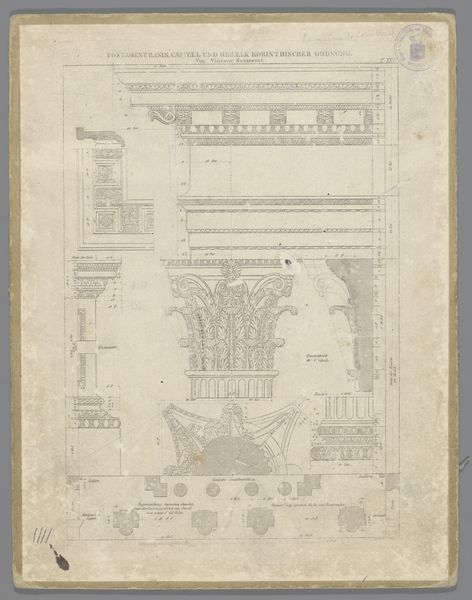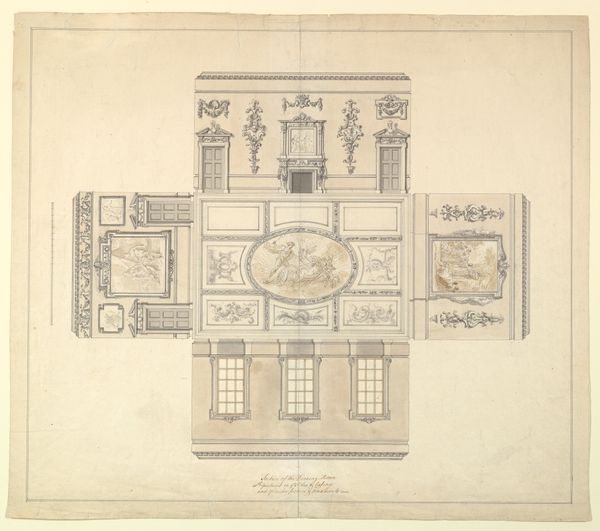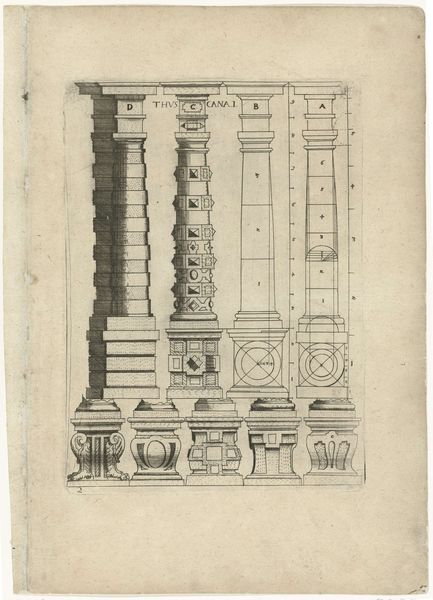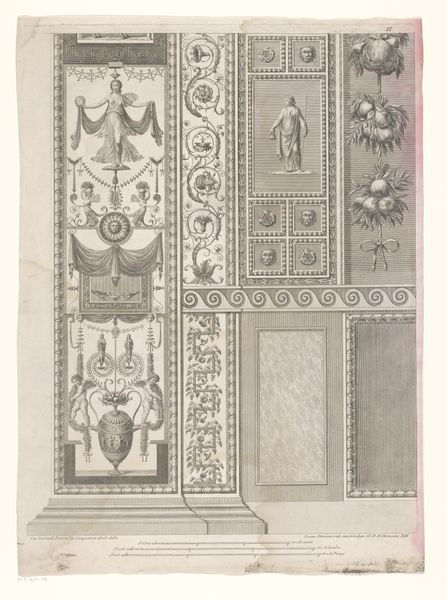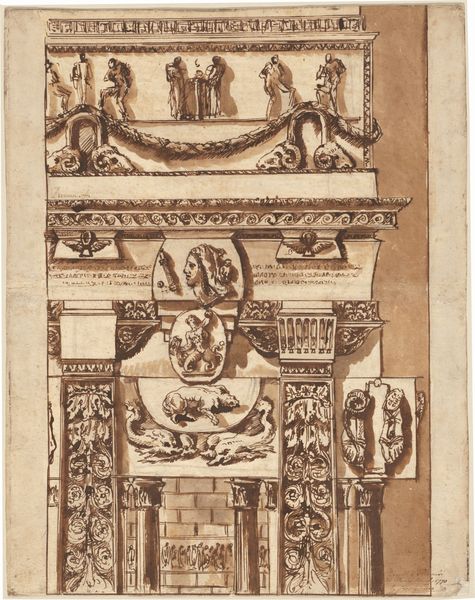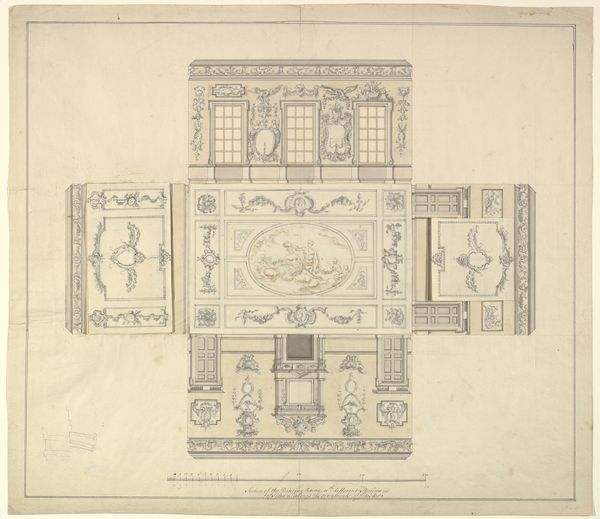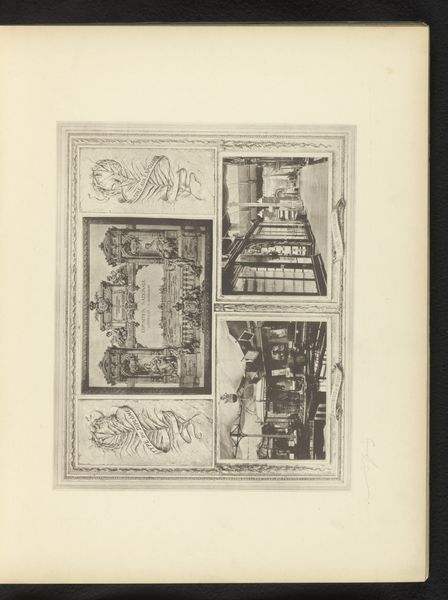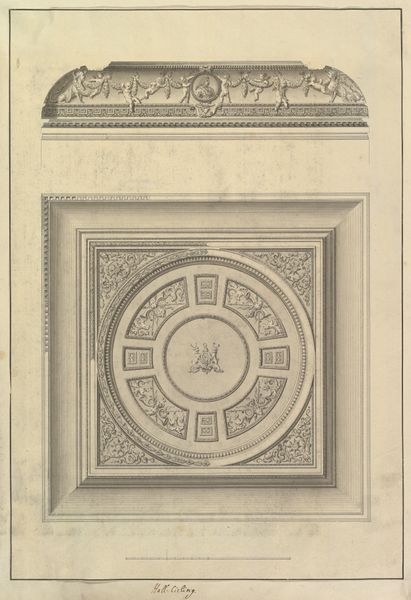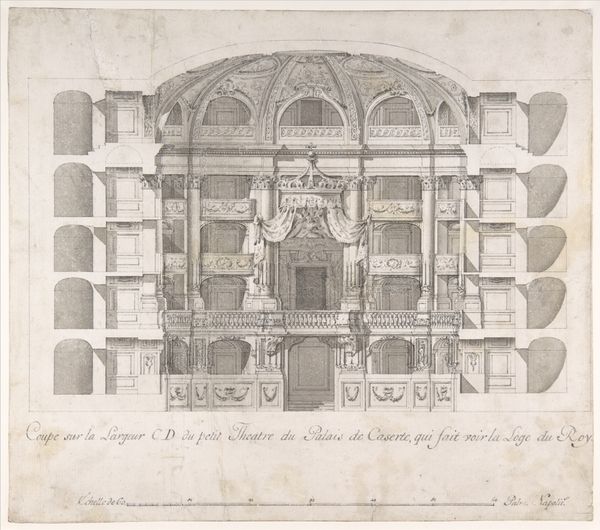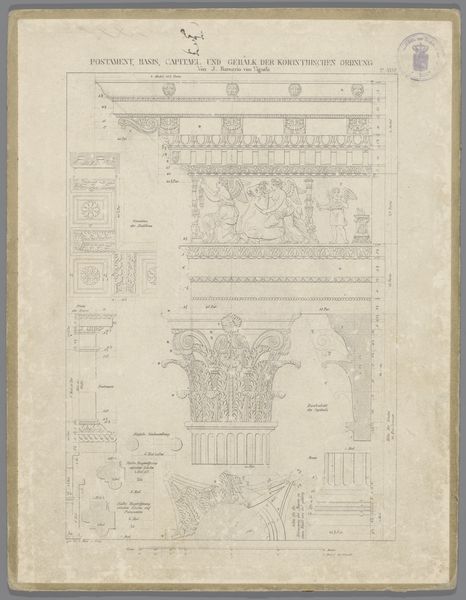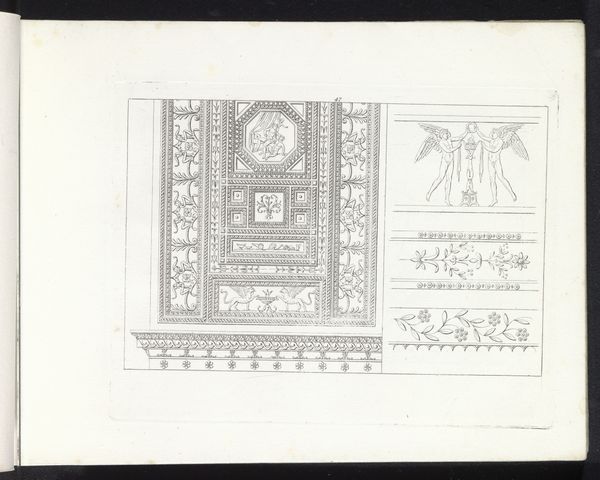
Groteske wanddecoratie met vogels, hippocampussen, wapens, arabesken en putti 1534 - 1609
0:00
0:00
michelegreco
Rijksmuseum
drawing, ornament, paper, ink, architecture
#
drawing
#
ornament
#
old engraving style
#
bird
#
paper
#
11_renaissance
#
ink
#
architecture
Dimensions: height 452 mm, width 306 mm
Copyright: Rijks Museum: Open Domain
Michele Greco created this grotesque wall decoration with birds, hippocampuses, weapons, arabesques and putti with pen and brown ink in the late 16th or early 17th century. At this time, the rediscovery of ancient Roman art and architecture during the Renaissance was in full swing. Artists looked to classical forms and motifs for inspiration, often incorporating them into their own work. Grotesque designs, characterized by their whimsical and fantastical combinations of human, animal, and plant forms, were particularly popular for decorating walls and ceilings in wealthy homes and palaces. This drawing reflects the culture of collecting and connoisseurship that was emerging during this period. Drawings like this were often collected by wealthy patrons and art enthusiasts, who valued them for their aesthetic qualities and their historical significance. The presence of this drawing in the Rijksmuseum speaks to the enduring appeal of Renaissance art and its continuing relevance for contemporary audiences. To truly appreciate the meaning of this work, we can delve into primary source materials, such as architectural treatises, design books, and inventories of private collections.
Comments
No comments
Be the first to comment and join the conversation on the ultimate creative platform.
